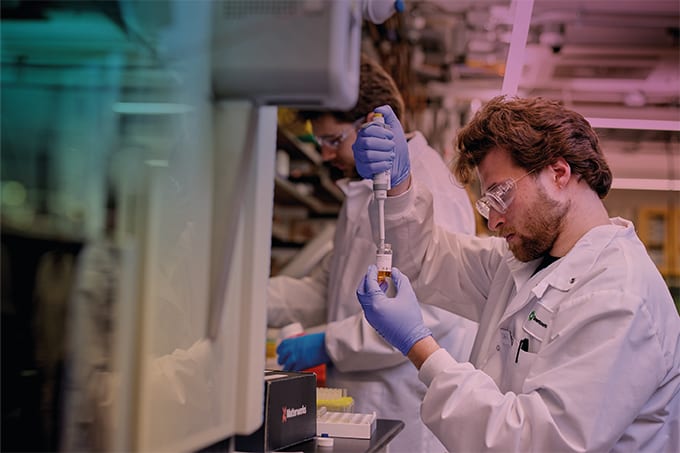On first glance, the analytical sciences do not appear to follow traditional natural sciences, which typically begin with the deduction of general laws, move onto the organization of knowledge in a certain paradigm, and so on. Analytical science always starts with a sample and a question. How can I understand the compositional or the chemical structure? You then begin to make an almost abstract leap away from the sample to ask more general questions, such as can we detect this element or molecule in this matrix? At that point, many of the common terms in analytical science become apparent: precision, accuracy, selectivity… And they all indicate that this is an inductive science.
Let’s be very clear that it is a “science” and not just a collection of tools in a toolbox. Buying an instrument does not equate to expertise. Analytical science is a scientific discipline that exists not only in chemistry but at the interface with physics and biology. In fact, true analytical science should allow us to progress from knowledge of an individual sample towards a guiding principal that allows us to understand future samples. Only by following this line of abstraction are we doing something new – and not simply taking measurements. Put another way, if all you do is measure, it’s not state-of-the-art and it’s not really problem solving. Sure, measuring things can be complicated and there is room for error, but the wider questions should be: “how can I generate new insights?” or “how can I understand through measurement?” Answer those, and you’re on the road to building new hypotheses, which should be at the heart of any scientific discipline.
And the same goes for the teaching of our field. Consider mathematics. In some ways, it suffers from the same problem. If we only teach students how to complete exercises through pre-determined mathematical principals, where will the new hypotheses of the future come from? Likewise, many textbooks on analytical science are an alphabetical collection of instruments and techniques, or a collection of pre-developed methods. We have to teach case-based analytical science. To go back to the toolbox analogy, if you own paint and brushes, it does not make you Pablo Picasso. There is a blank canvas that must be filled, which makes it a creative process. The ‘art’ of analytical science is being able to connect things by looking beyond the sample. And that requires not just a deep understanding of your tools, but also knowledge of the chemistry, physics and biology. I think that’s why you find so many people with a broad interest in science in our field.
At SALSA – the School of Analytical Science Adlerhof – in Humboldt University of Berlin, we try to engage our graduate students through real or simulated enquiry-based education that allows them to reach conclusions through observations. It is essential that they learn to ask the right questions. In that way, we have adopted a Socratic approach to teaching. Although it seems obvious, it’s a teaching method that’s often lacking, not only in analytical science but also in
other areas.
How do we create analytical Picassos? That’s a good question. We have to go beyond the core discipline of our students and allow them to see the common – often analytical – questions that bind all science. If physicists sit with biologists and chemists, for example, they can begin to perceive the bigger picture. It gives me great pleasure to witness the ‘awakening’ of a student – that moment when they realize that there is a great deal beyond the very specialized objective of their PhD. At that point, you have been successful in inculcating analytical thinking.




